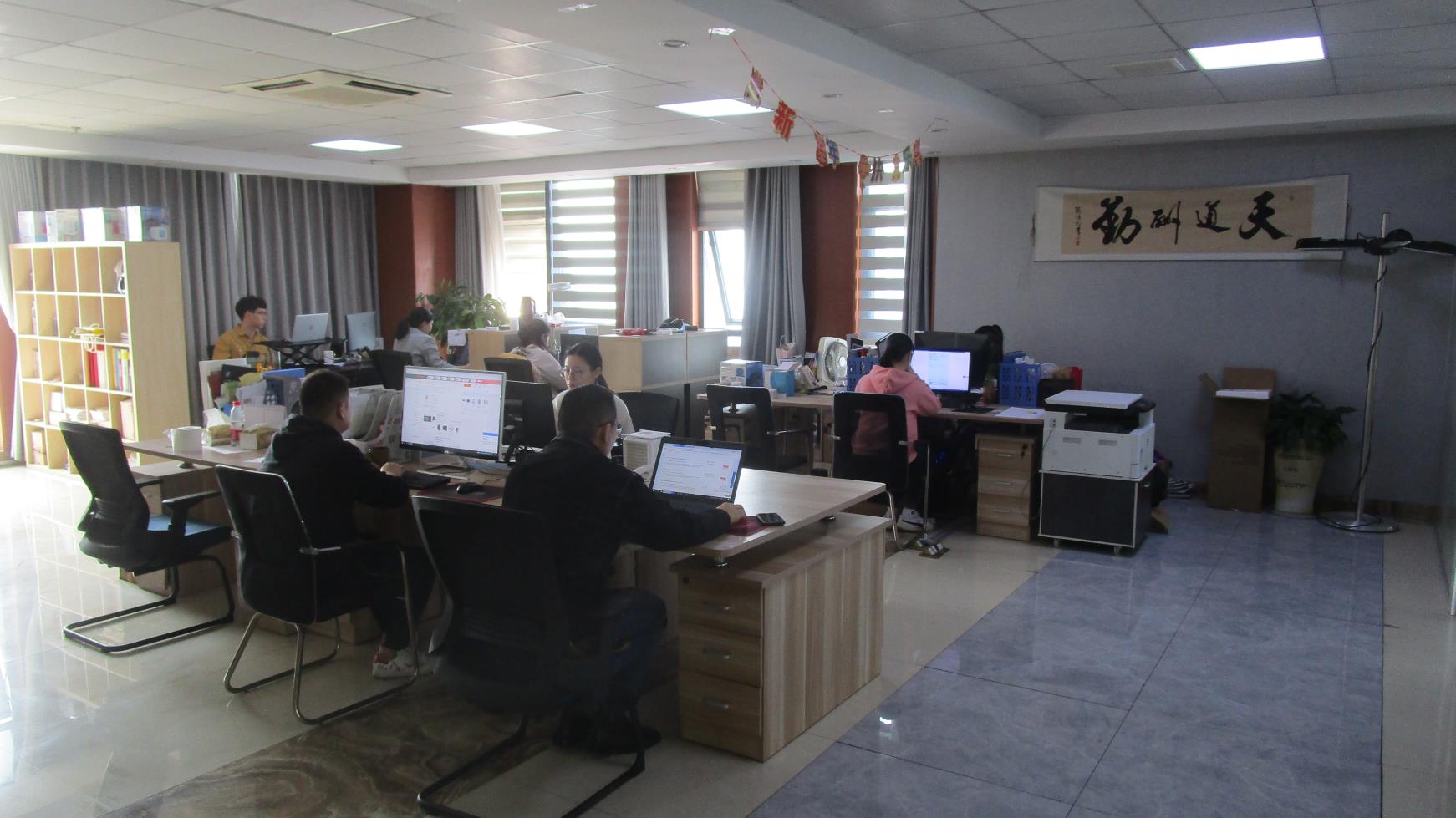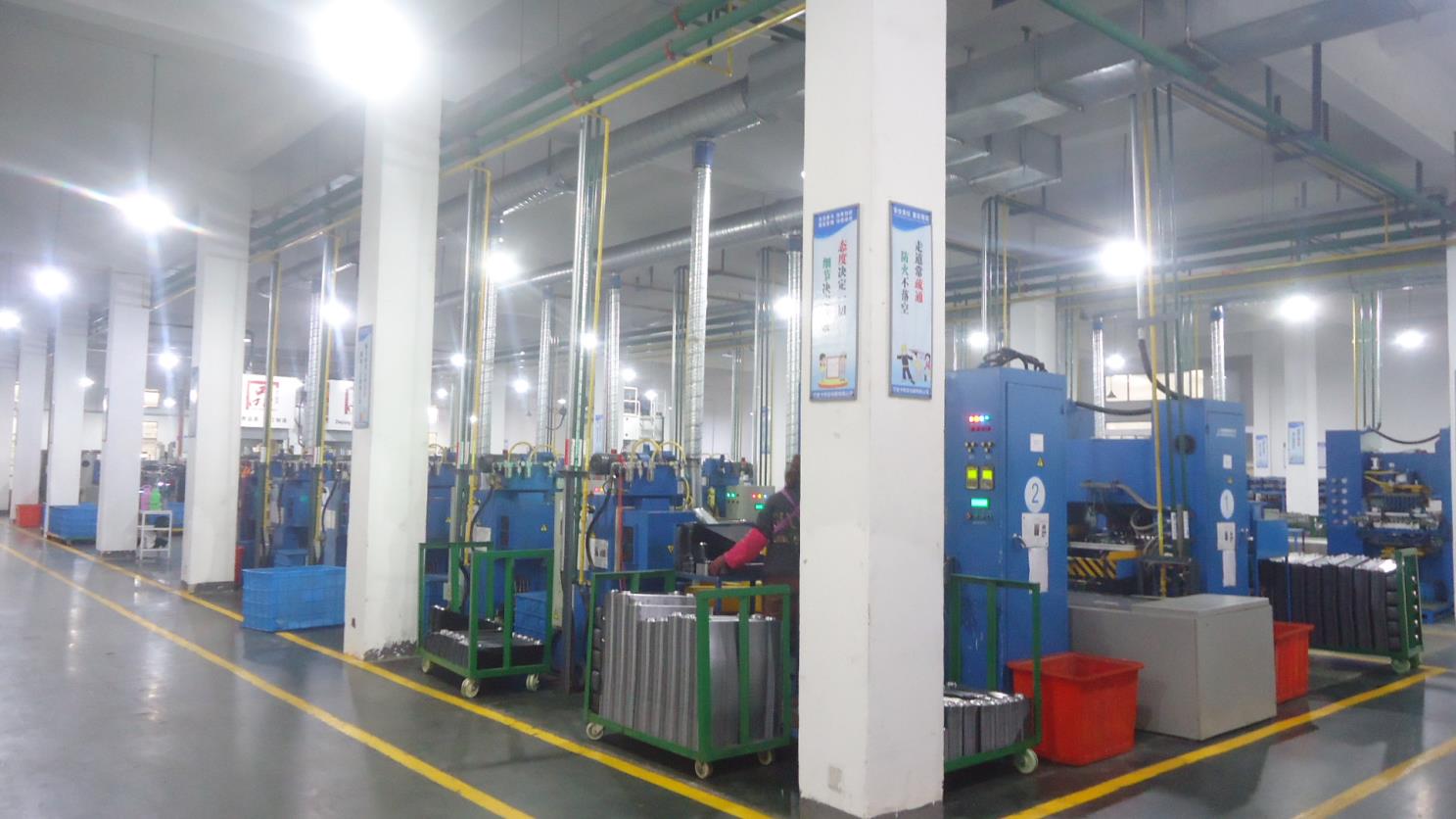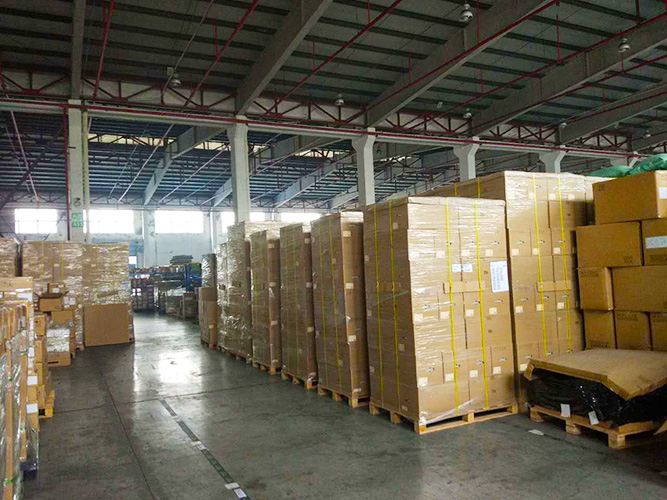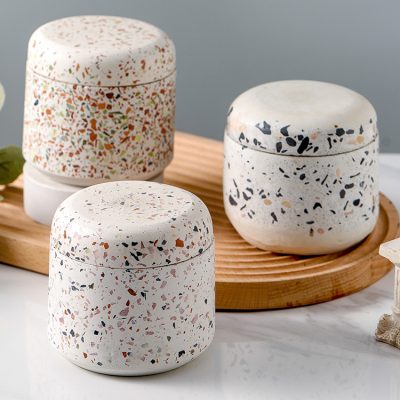
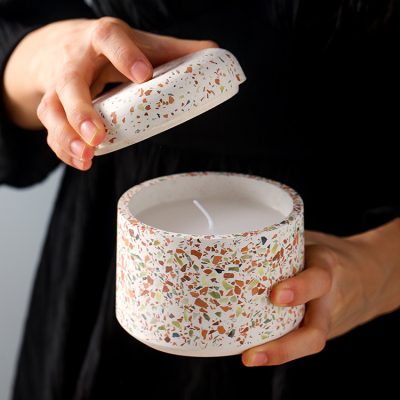
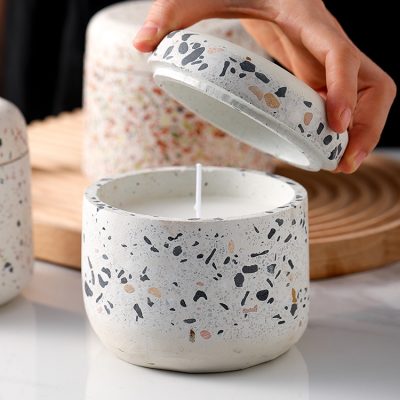
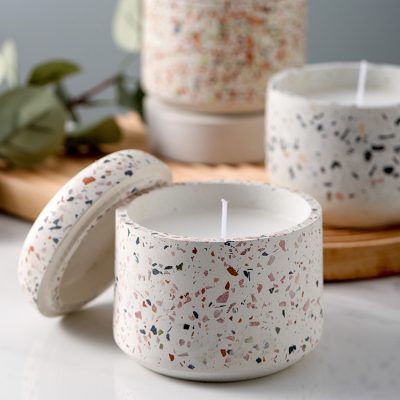
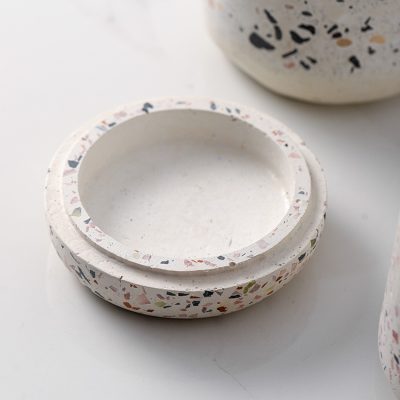
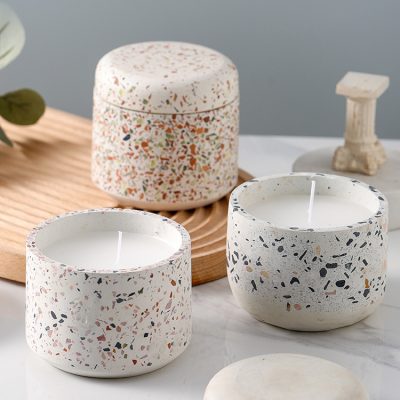
| Product Name | Ceramic Candle Container |
| Material | Ceramic |
| Size | 10X14X13.5 cm |
| Weight | 216g |
| MOQ | 6 |
| Color | Grey;Pink;Green;Blue |
| Feature | High Quality; With Lid |
| Payment | T/T, Credit Card, E-checking, Ali-Pay, Trade assurance |
| Logistics Service | EXW/FOB/CIF/DDP |
| Delivery time | 5-10 days(Sample), 25-35 days(Mass production) |
Ceramics is the tradition of 5000 years of Chinese culture. Ceramics is the general term of pottery and porcelain. People invented pottery as early as the Neolithic Age, about 8000 BC. Ceramic materials are mostly oxides, nitrides, borides and carbides. Common ceramic materials are clay, alumina, kaolin and so on. Ceramic materials generally have higher hardness, but poor plasticity. In addition to the use of food utensils and decoration, it also plays an important role in the development of science and technology. Ceramic materials are the earth’s original large resources of clay after quenching. And the nature of clay toughness, room temperature water plastic, small dry can be carved, dry can be ground; Can be burned to 700 degrees into pottery can hold water; Burned to 1230 degrees porcelain, can almost not water absorption and high temperature corrosion resistance. The flexibility of its use has led to a variety of creative applications in today’s culture and technology. Waxtai is a Chinese word, la tai in Pinyin, which means a utensil on which candles can be placed.
A candle is too thin to stand on, and needs a base to hold it in place. In the past, candles had two styles. One was as thick as the other, similar to today’s candles, but much thicker. The other is thick at the top and thin at the bottom, with a stick underneath. Therefore, the fixed candle base is divided into two kinds, one is with a “bottle mouth”, the lower end of the thin candle inserted in the inside, this kind of base is called “wax table”; The other had a sharp cone on which candles of the same thickness were tied. The base was called a “wax tie”.
